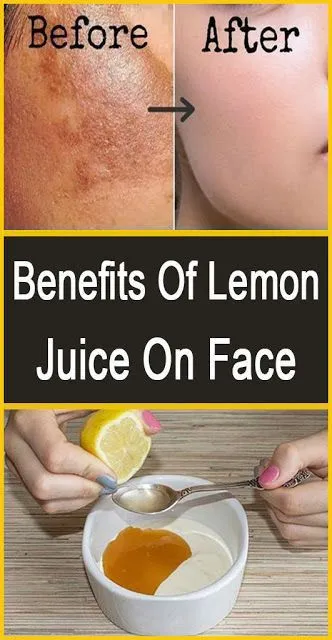What is Lemon Juice Face Whitening and How it Works
Lemon juice has been a popular home remedy for skin lightening and brightening for centuries. Its effectiveness stems from its high concentration of citric acid, a natural form of alpha-hydroxy acid (AHA). AHAs are known for their exfoliating properties, helping to remove dead skin cells and promote cell turnover. This process can reveal brighter, fresher skin underneath. Lemon juice’s acidic nature also contributes to its whitening effect by potentially inhibiting melanin production, the pigment responsible for skin color. However, it is important to note that while lemon juice can offer noticeable improvements, results vary depending on skin type, the concentration of lemon juice used, and the frequency of application. Always start with a diluted solution and perform a patch test before applying it to your entire face to avoid any adverse reactions.
The Science Behind Lemon Juice Face Whitening
The science behind lemon juice’s skin-whitening capabilities primarily revolves around its active components. Citric acid, the most abundant, works as a gentle exfoliant, breaking down the bonds between dead skin cells, thus removing them. This process can lead to a reduction in dullness and reveal a brighter complexion. Furthermore, citric acid may also help to lighten dark spots and hyperpigmentation by reducing melanin production. Another important aspect to consider is the presence of Vitamin C (ascorbic acid) in lemon juice, a potent antioxidant known for its role in collagen synthesis, which is essential for skin elasticity and overall health. Vitamin C also helps to protect the skin from damage caused by free radicals, which can lead to premature aging and uneven skin tone. However, the concentration of these active ingredients varies, and the effectiveness depends on factors like the lemon’s freshness and how it’s prepared.
Amazing Benefit 1 Whitening and Brightening
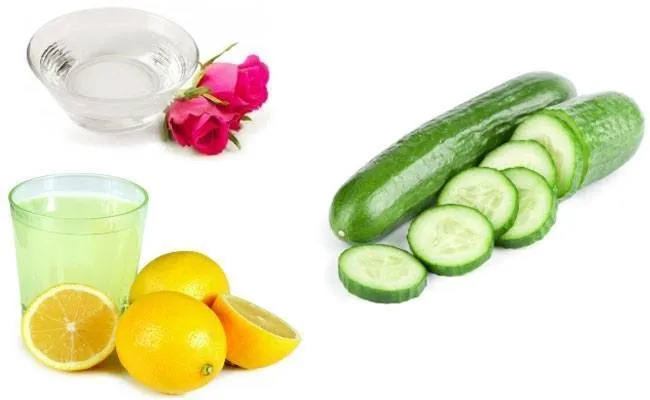
One of the most celebrated benefits of using lemon juice for face whitening is its ability to visibly brighten the skin. The citric acid in lemon juice acts as a natural bleaching agent, which helps to reduce the appearance of dark spots, sunspots, and other forms of hyperpigmentation. With consistent use, lemon juice can contribute to a more even skin tone, imparting a natural glow. The exfoliating properties of lemon juice remove the outer layer of dead skin cells, revealing fresher, brighter skin beneath. This action is particularly beneficial in addressing dullness caused by environmental factors or aging. To maximize these effects, it’s crucial to use lemon juice correctly and safely, avoiding excessive application or concentration that could lead to irritation. Always combine it with other ingredients like water or honey to reduce its strength and enhance its benefits. It is always recommended to apply SPF after usage.
How Lemon Juice Reduces Dark Spots and Pigmentation
Lemon juice is highly effective at reducing dark spots and pigmentation due to its properties. The primary mechanism is the citric acid, which gently exfoliates the skin, removing the top layer of dead cells that often contain concentrated melanin, the pigment responsible for dark spots. This exfoliating action allows for the gradual fading of these spots. Furthermore, citric acid may inhibit tyrosinase, an enzyme crucial for melanin production. By suppressing tyrosinase activity, lemon juice can help prevent new dark spots from forming. It is important to note that while lemon juice can be effective, it’s not a quick fix. Consistent application, combined with sun protection, is essential for seeing noticeable changes. Always do a patch test, start with a diluted solution, and combine lemon juice with other gentle ingredients to mitigate any potential irritation. Applying lemon juice can be a valuable part of your routine.
Amazing Benefit 2 Exfoliation for Glowing Skin
Lemon juice is a powerhouse for skin exfoliation. Exfoliation is the process of removing dead skin cells from the surface, which is crucial for maintaining healthy and radiant skin. The citric acid in lemon juice acts as a natural exfoliant, gently dissolving the bonds that hold dead skin cells together. This process reveals the fresh, new skin underneath, resulting in a brighter complexion. Regular exfoliation with lemon juice can help improve skin texture, making it smoother and softer. It also unclogs pores, reducing the likelihood of breakouts. However, due to its acidic nature, it’s essential to use lemon juice cautiously. Over-exfoliation can lead to irritation, redness, and increased sensitivity to the sun. Diluting lemon juice with water or other ingredients, and limiting its use to a few times a week, is recommended for safe and effective exfoliation. It is crucial to ensure that the concentration is appropriate for your skin. This approach allows you to reap the benefits without causing any harm.
Gentle Exfoliation with Lemon Juice

Gentle exfoliation with lemon juice is a great way to rejuvenate your skin. It involves using diluted lemon juice to lightly remove dead skin cells without causing harsh irritation. Unlike abrasive scrubs, the citric acid in lemon juice works by chemically breaking down the bonds between dead skin cells, making them easier to remove. This method is particularly suitable for sensitive skin, where physical exfoliants might cause redness or inflammation. To achieve gentle exfoliation, it is best to dilute the lemon juice with water, honey, or another soothing ingredient. Apply the solution to your face with a cotton pad and leave it for a short period, then rinse thoroughly. It is important to avoid rubbing or scrubbing vigorously, as this can irritate the skin. Gentle exfoliation with lemon juice will result in a more even skin tone and texture. Consistent, cautious use is key to the positive results.
Lemon Juice vs Other Exfoliants
When comparing lemon juice to other exfoliants, several key differences emerge. Unlike physical exfoliants such as scrubs or brushes, lemon juice offers a chemical exfoliation method through its citric acid content. Physical exfoliants work by manually removing dead skin cells, which can sometimes lead to micro-tears and irritation, especially for sensitive skin. Chemical exfoliants like lemon juice, on the other hand, work by dissolving the bonds between dead skin cells. Other chemical exfoliants like AHAs (glycolic or lactic acid) and BHAs (salicylic acid) can be more potent than lemon juice, offering deeper exfoliation but also carrying a higher risk of irritation. Lemon juice is milder, making it suitable for those new to exfoliation or with sensitive skin. However, the concentration of active ingredients in other exfoliants is often more standardized, providing more predictable results. The best choice depends on your skin type, sensitivity, and desired results. Always consider a patch test before using any new exfoliant.
Amazing Benefit 3 Controlling Oil and Acne
Lemon juice can be beneficial in controlling oil and acne due to its astringent properties and antibacterial effects. The citric acid in lemon juice can help to tighten pores, reducing the production of excess oil and preventing the buildup of sebum, which often leads to acne. Furthermore, the acidic nature of lemon juice helps to disrupt the environment in which acne-causing bacteria thrive. It can also act as a natural disinfectant, killing bacteria on the skin’s surface. This can help to reduce the severity of existing acne and prevent new breakouts. However, it’s crucial to use lemon juice with caution when treating acne. Excessive use can dry out the skin and cause irritation, leading to increased oil production as the skin tries to compensate for the dryness. It’s essential to dilute lemon juice, start with a low concentration, and monitor how your skin reacts. Combining lemon juice with other ingredients like honey or aloe vera can provide extra benefits while mitigating the risk of irritation.
Lemon Juice for Acne Prevention
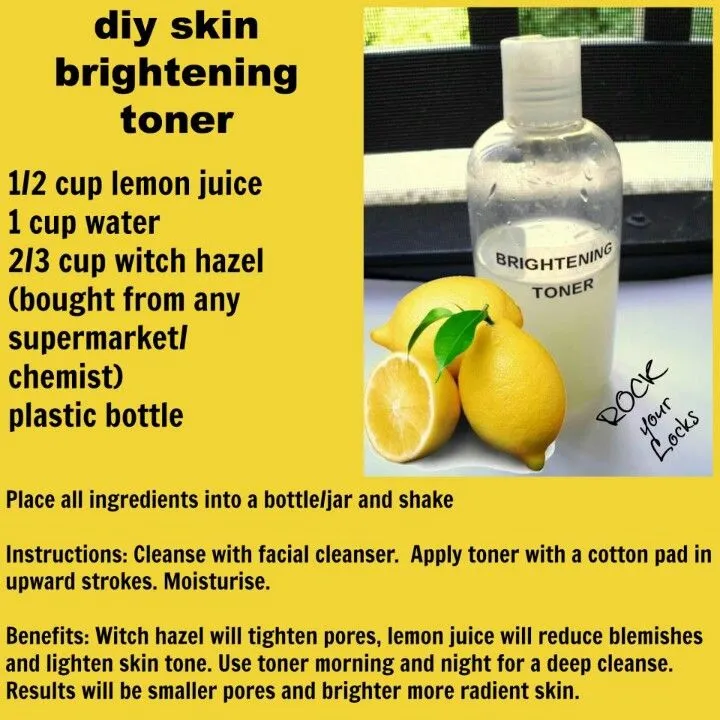
Lemon juice can be used to help prevent acne. Its antibacterial properties can kill acne-causing bacteria, and its astringent qualities can tighten pores. This dual action makes lemon juice a potentially valuable tool in an acne prevention skincare routine. Regular application of diluted lemon juice can help to keep pores clear, reducing the likelihood of blackheads, whiteheads, and other types of acne. Furthermore, the exfoliating action of lemon juice helps to remove dead skin cells that might clog pores. However, to use lemon juice effectively for acne prevention, it is necessary to be aware of the potential downsides. Overuse can lead to dryness and irritation, which might worsen acne. It’s crucial to start with a diluted solution and monitor the skin’s response. You should combine lemon juice with ingredients like honey or aloe vera. Using lemon juice as a preventative measure can be a helpful addition to your routine, if you apply it with care.
How to Use Lemon Juice for Oily Skin
Using lemon juice for oily skin can be a game-changer, due to its astringent and oil-controlling properties. The citric acid in lemon juice helps to tighten pores, which reduces the production of excess oil. This action can leave the skin looking less shiny and feeling fresher. The antibacterial properties of lemon juice can also help to reduce acne breakouts, as oily skin is more prone to acne. It’s crucial to use lemon juice correctly to avoid any unwanted effects. Start with a diluted solution. Apply the lemon juice to your face using a cotton pad, and leave it on for a few minutes before rinsing. It is essential to avoid using pure, concentrated lemon juice, as this can strip the skin of its natural oils, causing dryness. Always follow up with a moisturizer to keep the skin hydrated. You should only apply it a few times per week. This approach helps to control oil production. It is always recommended to conduct a patch test beforehand.
Amazing Benefit 4 Natural Skin Toner
Lemon juice works as a natural skin toner, thanks to its astringent properties. As an astringent, lemon juice helps to tighten pores, which can give the skin a smoother appearance and reduce the likelihood of dirt and oil clogging the pores. This can be particularly helpful for people with oily or acne-prone skin. The acidic nature of lemon juice also helps to balance the skin’s pH levels, which are essential for maintaining healthy skin. Using lemon juice as a toner can also help to brighten the skin and even out the skin tone. However, it’s vital to use lemon juice with caution. Excessive use or undiluted application can lead to irritation, dryness, and increased sensitivity to the sun. For best results, mix lemon juice with water or other soothing ingredients, such as rose water or honey. This will provide the toning benefits while reducing any potential adverse effects. Always follow with a moisturizer.
How Lemon Juice Tightens Pores

Lemon juice tightens pores due to its astringent properties. An astringent is a substance that causes tissues to contract, which reduces the size of pores. The citric acid in lemon juice acts as a natural astringent, causing the pores to constrict temporarily. This contraction makes the pores appear smaller, which gives the skin a smoother and more refined texture. Regular use of lemon juice can result in a noticeable reduction in the appearance of pores. It is necessary to exercise caution while using lemon juice as a pore-tightening agent. Pure lemon juice might be too strong and can cause irritation or dryness, especially on sensitive skin. You should always dilute lemon juice with water or another ingredient before applying it to your face. Use it in moderation, perhaps a few times a week. Following this approach will provide the pore-tightening benefits while minimizing the risk of adverse effects.
Using Lemon Juice as Part of Your Routine
Incorporating lemon juice into your skincare routine can be a valuable addition, provided you do it cautiously and smartly. Begin by diluting the lemon juice with water or other ingredients like honey, rose water, or aloe vera. Apply the diluted mixture to your face with a cotton pad, avoiding the eye area. Allow it to sit for a short time, from a few minutes to about 10 minutes, and then rinse thoroughly with cool water. After rinsing, always apply a moisturizer to keep your skin hydrated. When using lemon juice, start with a patch test to check for any allergic reactions or sensitivities. Due to its sensitivity to sun exposure, use lemon juice at night or, if using during the day, apply a broad-spectrum sunscreen with a high SPF. You may incorporate lemon juice into your routine a few times a week. Consistency is key, and you should monitor your skin’s reaction. By combining lemon juice with other beneficial products, you can create a balanced and effective routine.
Amazing Benefit 5 Antioxidant Properties
Lemon juice contains antioxidant properties, particularly due to its Vitamin C content. Antioxidants are essential for skin health because they help to neutralize free radicals, unstable molecules that can damage skin cells and contribute to premature aging. Free radicals can be generated by environmental factors like UV radiation, pollution, and smoking. By protecting the skin from free radical damage, antioxidants help to slow down the aging process and reduce the appearance of fine lines, wrinkles, and age spots. Vitamin C supports the production of collagen, which is crucial for maintaining skin elasticity and firmness. Regular use of lemon juice, therefore, can contribute to healthier, more resilient skin. However, the effectiveness depends on the concentration of Vitamin C in the lemon juice and how well it is absorbed. Combining lemon juice with other antioxidant-rich ingredients like green tea or berry extracts can further enhance its benefits. Consistent application can help protect your skin and give you a more youthful appearance.
Protecting Your Skin from Damage
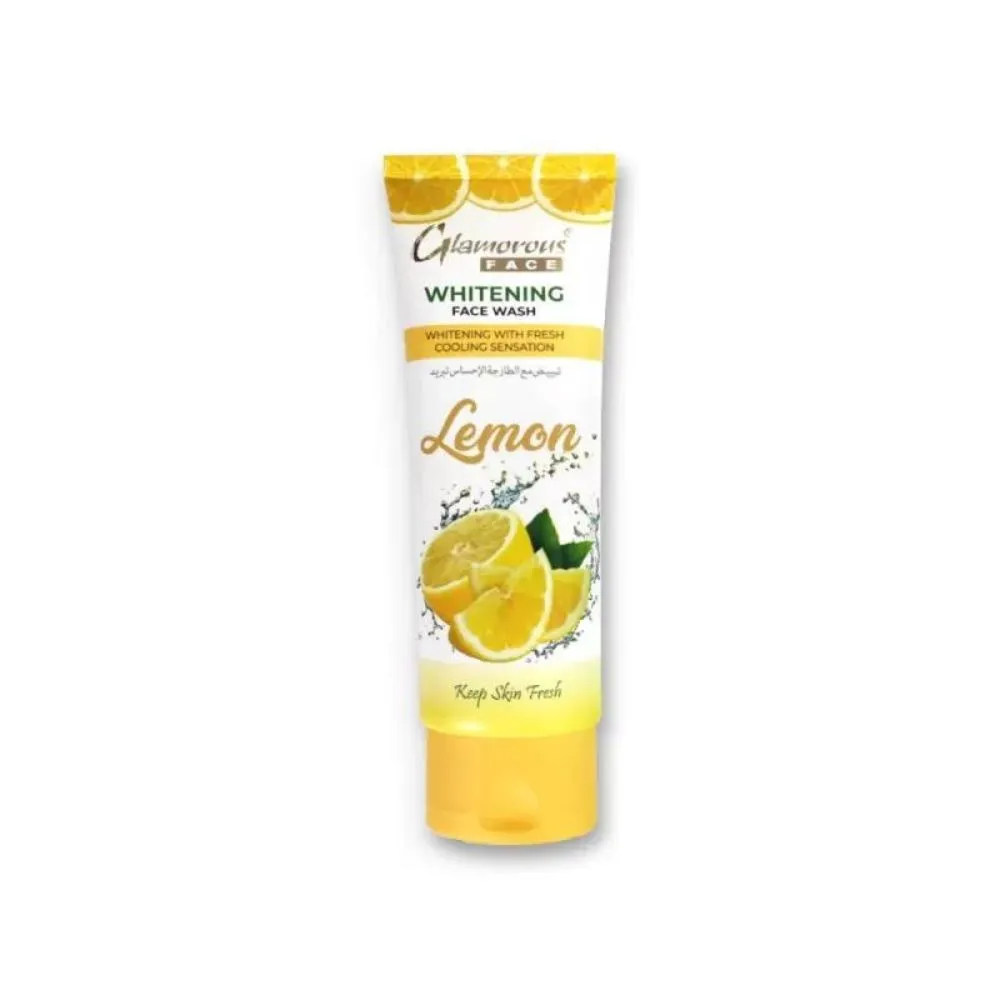
Using lemon juice can help protect your skin from damage, thanks to its antioxidant properties and Vitamin C content. Antioxidants help to combat free radicals, unstable molecules that can damage skin cells, leading to premature aging, inflammation, and other issues. Vitamin C, a potent antioxidant, is especially valuable in protecting your skin. It can help to neutralize free radicals caused by environmental factors such as UV radiation and pollution. Vitamin C also supports collagen synthesis, crucial for maintaining the skin’s elasticity and firmness, reducing the appearance of wrinkles. Moreover, vitamin C can also help in reducing the appearance of sunspots and hyperpigmentation, contributing to a more even skin tone. Applying lemon juice, however, should be done carefully and in moderation, as it can also make your skin more sensitive to sunlight. Use sunscreen with a high SPF when going outdoors and start with diluted lemon juice. This combination can help to protect your skin.
Lemon Juice and Anti-Aging
Lemon juice can play a role in anti-aging efforts due to its antioxidant properties and Vitamin C content. Vitamin C is known to stimulate collagen production, which helps to maintain the skin’s elasticity and firmness, which is vital in fighting the signs of aging, such as wrinkles and fine lines. The antioxidants in lemon juice also help to protect the skin from free radical damage. Free radicals are a major contributor to premature aging and the development of age spots and uneven skin tone. Lemon juice can help to counteract these effects. While lemon juice can be beneficial, it’s essential to use it carefully to avoid any side effects. It should be diluted, and you should apply sunscreen during the day, as lemon juice can make your skin more sensitive to sunlight. Combining lemon juice with other anti-aging ingredients, like retinol or hyaluronic acid, can further enhance its benefits. Consistency, care, and a balanced skincare routine are necessary to maximize its effects.
Precautions and Safety Tips for Using Lemon Juice
When using lemon juice for skin whitening and other skin treatments, several precautions and safety tips should be followed to prevent irritation or adverse reactions. Always start with a patch test on a small area of your skin before applying lemon juice to your entire face. This will help you determine if you have any sensitivities or allergies. Dilute lemon juice with water or other ingredients to reduce its concentration. This step minimizes the risk of irritation, dryness, and sensitivity. Avoid using lemon juice on broken skin or open wounds. The acidic nature of lemon juice can cause severe irritation and slow down the healing process. Since lemon juice can increase your skin’s sensitivity to the sun, it’s important to limit your sun exposure. Always apply a broad-spectrum sunscreen with a high SPF during the day. Use lemon juice only in the evening to avoid any potential sun-related problems. Also, it is essential to monitor your skin’s reaction to lemon juice. If you experience redness, burning, itching, or any other signs of irritation, discontinue use immediately. Always consult with a dermatologist if you have any concerns or are unsure about using lemon juice on your skin.
Potential Side Effects of Lemon Juice
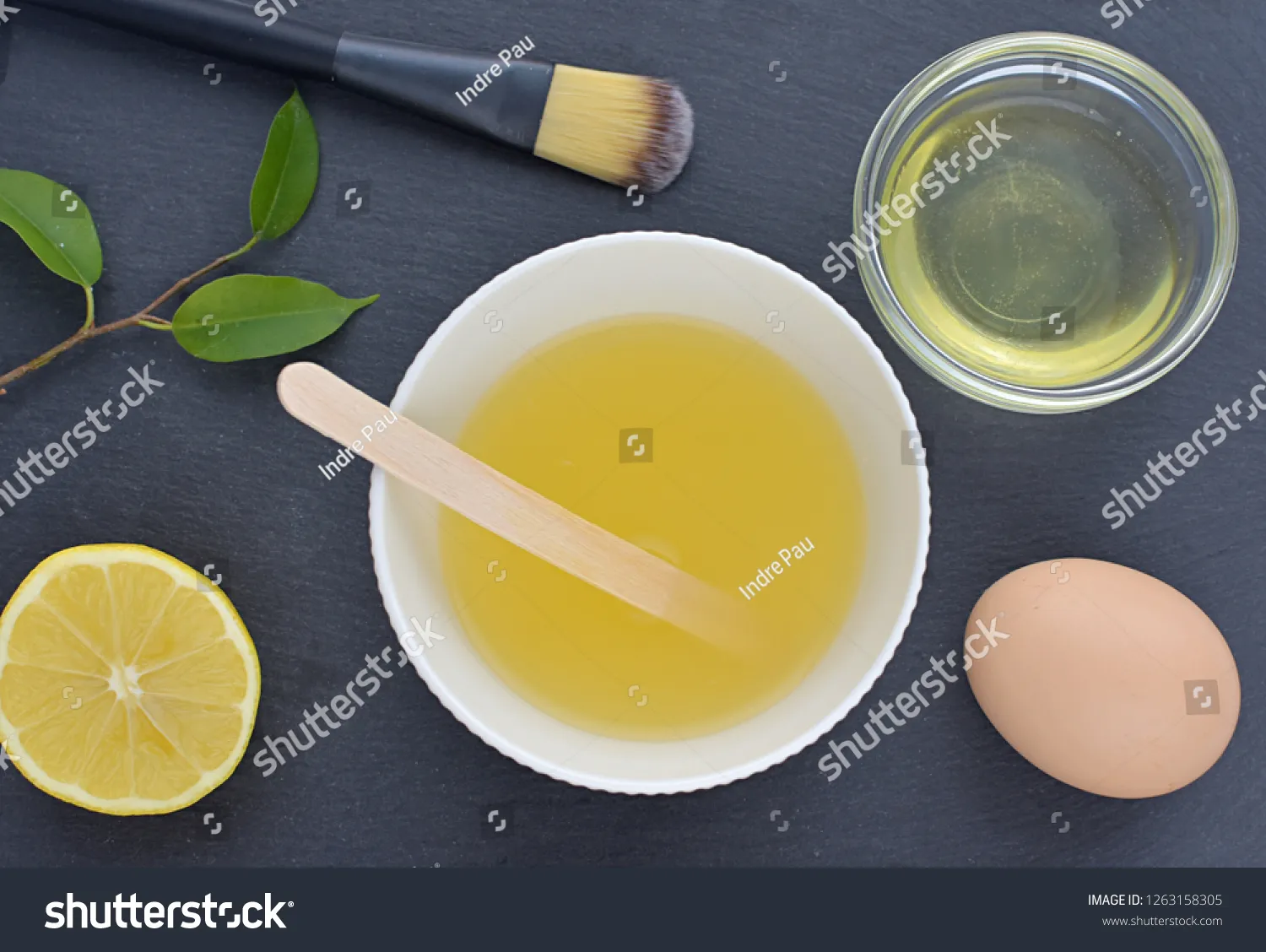
While lemon juice offers several skin benefits, it’s essential to be aware of its potential side effects. One of the most common issues is skin irritation, which can manifest as redness, itching, burning, or a stinging sensation. The high acidity of lemon juice can disrupt the skin’s natural pH balance, leading to these reactions. Another potential side effect is increased photosensitivity, meaning your skin becomes more sensitive to the sun’s UV rays. This can result in sunburn, inflammation, and even hyperpigmentation. Using lemon juice without adequate sun protection can cause dark spots and uneven skin tone. Some people might experience dryness or flaking, especially if they use lemon juice frequently or in high concentrations. This is due to its exfoliating properties, which can strip the skin of its natural oils. Allergic reactions are also possible, although less common, and can include rashes, hives, and swelling. If you experience any adverse reactions, discontinue use immediately and consult with a dermatologist. It is always recommended to dilute lemon juice.
How to Properly Apply Lemon Juice to Your Face
Properly applying lemon juice to your face is crucial to achieving the desired benefits while minimizing the risk of irritation. First, ensure that you prepare your skin by cleansing it thoroughly to remove any makeup, dirt, or oil. Next, dilute the lemon juice with water. A good starting point is a 1:1 ratio, but you can adjust the concentration depending on your skin’s sensitivity. Apply the diluted solution to your face using a cotton pad, avoiding the eye area. Gently dab the solution over your skin, making sure you cover the desired areas evenly. Leave the lemon juice on your face for a short time, typically 5–10 minutes. After this time, rinse your face thoroughly with cool water to remove all traces of the lemon juice. Pat your skin dry with a soft towel. Always follow up with a moisturizer to hydrate and soothe your skin. For optimal results, apply lemon juice at night to avoid sun exposure. Use it a few times a week, depending on your skin’s tolerance. If you notice any irritation or discomfort, reduce the frequency or discontinue use. Always consult with a dermatologist.
Alternatives to Lemon Juice for Skin Whitening
If you’re seeking alternatives to lemon juice for skin whitening, several options are available, each with its own benefits and potential side effects. One popular alternative is Vitamin C serums, which deliver concentrated doses of antioxidants to brighten the skin and reduce the appearance of dark spots. These serums are typically less irritating than lemon juice and offer similar benefits. Another option is alpha-hydroxy acids (AHAs), such as glycolic or lactic acid. AHAs exfoliate the skin and promote cell turnover, which results in a brighter complexion. Always start with a low concentration and use sunscreen. Retinoids, such as retinol, are also effective in reducing hyperpigmentation and improving skin tone. They stimulate collagen production and have anti-aging effects, but can cause skin sensitivity. Arbutin is a natural skin-lightening agent extracted from various plants. It works by inhibiting melanin production and is often gentler than other options. When selecting alternatives, consider your skin type, sensitivity, and desired results. Always start with a patch test and consult with a dermatologist to determine the most suitable option for your skin.
